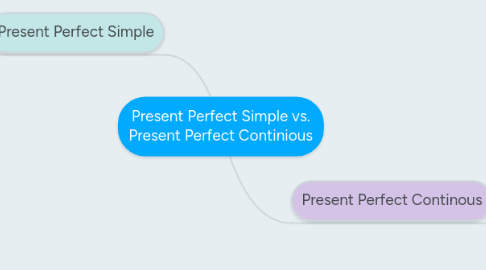
1. Present Perfect Simple
1.1. Expresses an action that is still going on or that stopped recently, but has an influence on the present.
1.1.1. Puts emphasis on the result
1.1.2. Action that has taken place once, never or several times before the moment of speaking
1.1.3. Finished action that has an influence on the present
1.1.4. Action that stopped recently
1.1.5. Action that is still going on
1.1.6. Form
1.1.6.1. has/have + past participle
1.2. For irregular verbs, use the participle form.
1.2.1. For regular verbs, just add “ed”.
1.3. Already, ever, just, never, not yet, so far, till now, up to now
1.4. Examples:
1.4.1. She has written five letters.
1.4.2. School has not started yet.
1.4.3. She has cooked dinner.
1.4.4. I have lost my key.
2. Present Perfect Continous
2.1. Show that something started in the past and has continued up until now.
2.2. Durations.
2.3. "For five minutes," "for two weeks," and "since Tuesday"
2.4. Forms
2.4.1. Active
2.4.1.1. Recently, John has been doing the work.
2.4.2. Passive
2.4.2.1. Recently, the work has been being done by John.
2.4.3. NOTE:
2.4.3.1. Present Perfect Continuous is less commonly used in its passive form.
2.5. Examples:
2.5.1. They have been talking for the last hour.
2.5.2. She has been working at that company for three years.
2.5.3. What have you been doing for the last 30 minutes?
2.6. IMPORTANT
2.6.1. Remember that the Present Perfect Continuous has the meaning of "lately" or "recently."
2.6.1.1. If you use the Present Perfect Continuous in a question such as "Have you been feeling alright?", it can suggest that the person looks sick or unhealthy.
2.6.1.2. A question such as "Have you been smoking?" can suggest that you smell the smoke on the person.
2.6.1.3. Using this tense in a question suggests you can see, smell, hear or feel the results of the action.
2.6.1.4. It is possible to insult someone by using this tense incorrectly.
